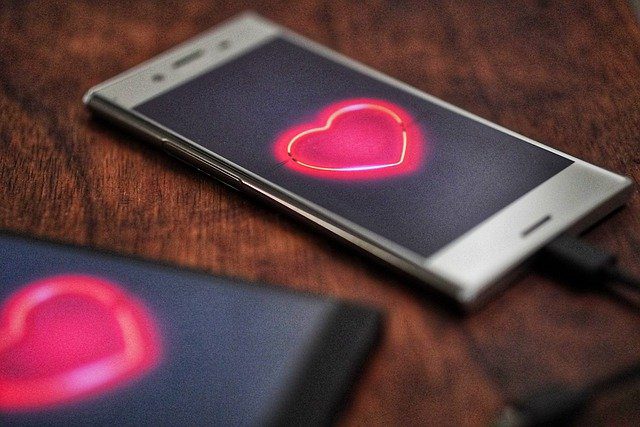- LGBTQ+ Nigerians targeted by criminals on dating apps
- Online forums report perpetrators
- A sting operation was organized to catch a ‘kito’ gang
LAGOS (Thomson Reuters Foundation) — When Acho Kenneth was asked to meet his Grindr date at the other man’s home in Lagos, it didn’t ring any alarm bells as discretion is the norm for gay men dating in Nigeria, where same-sex relations can land you in jail.
Kenneth was, however, a little taken aback when he arrived to find his date, who said his name was Ugo, hanging out with four friends. But the other men soon left, and he and Ugo moved to the bedroom to make out.
Soon after, the four men rushed back in and as he fended off blows, Kenneth realized he was a victim of kito, a form of violent entrapment that uses dating apps to lure victims.
“They were hitting and flogging me with belts,” the 25-year-old told the Thomson Reuters Foundation. “I was crying. I knew I had been set up.”
Kenneth was told to strip and was then filmed saying he was gay. His attackers threatened to send the video to his family and friends unless he gave them 1 million naira ($998).
But he only had 150,000 naira ($150) in his account and was told to call his family for the rest.
“They said I should tell them I’ve been kidnapped or they would out me to my family before they kill me,” he said.
His ordeal lasted seven hours before he was finally released after friends came up with an extra 350,000 naira ($349).
For more than a decade, Nigeria’s LGBTQ+ community has been tormented by the risk of falling victim to kito, and these attacks are on the rise.
Afraid of public abuse and police harassment, members of the LGBTQ+ community use online apps like Grindr, Romeo and Tinder to meet partners, but criminals exploit this habit to kidnap, beat and extort victims, some of whom are raped.
It’s a pattern also seen in other countries where being a sexual minority is dangerous, leaving LGBTQ+ people exposed to entrapment by petty criminals, organized gangs, and sometimes even police.
But in Nigeria, members of the LGBTQ+ community are fighting back, creating online forums to expose wrongdoers by posting their photos, names and dating app messages as a warning to others.
Now, before he meets anyone new, Kenneth scrolls through sites like the Kito Diaries, JP Crime Fighter and Splendid Love to make sure he doesn’t have to suffer such abuse again.
Police ‘never an option’
While being LGBTQ+ is not against the law in Africa’s most populous country, people who have same-sex relations can be jailed for up to 14 years.
In the north, where sharia law is in place, same-sex acts carry maximum penalties of death for men and whipping and/or imprisonment for women. Cases are infrequent, however, and the punishment is rarely carried out.
All this means that members of the LGBTQ+ community are vulnerable to exploitation, abuse and entrapment.
In 2023, about 70% of 996 human rights violations against people who are or were perceived to be LGBTQ+ were kito cases, according to data collected by The Initiative for Equal Rights (TIERs) in conjunction with 22 rights groups across Nigeria.
TIERs said there had been a “significant surge” in cases like Kenneth’s over the past seven years. LGBTQ+ advocates say both a 2014 law criminalising same-sex marriage and Nigeria’s worsening economic situation have led to this surge.
Legal experts suggest numbers could be even higher than reported.
“Kito victims hardly report their assaulters because of fear,” said Clinton Mabilo, a human rights lawyer based in Warri, Delta state.
Chimdimma Ike, director of programmes at TIERs, said kito gangs have become increasingly organised, often basing themselves in serviced apartments and using point-of-sale machines to extort money.
Chima, a 41-year-old victim of kito based in Enugu state, nearly lost his marriage in 2022 when assailants threatened to out him as a gay man to his family if he didn’t pay them 300,000 naira.
“Going to the police is never an option,” said Chima, who only gave his first name because of fear of identification. “(Perpetrators) will threaten to send your nude photos to your people and even colleagues at work and out you immediately if you report them to the police.”
Like Kenneth, Chima now uses online forums like the Kito Diaries to screen his dates and also thoroughly checks their social media accounts.
The Kito Diaries was set up by Abuja-based Walter Ude in 2015, and now has pages on Facebook, X and Instagram and a collective following of 43,000.
Victims report profiles to Ude, and he does his best to verify that blackmail or extortion did take place before reposting alleged perpetrators’ names, photos, known social media and dating app profiles, phone numbers, and the city they live in.
Ude says the alerts he posts save LGBTQ+ people “from the dangers they would have otherwise not known about.”
Many users are grateful. A recent message read: “Thank you so much for sharing … this guy has chatted me up before.”
The Splendid Love Facebook page was set up in 2021 by Michael Okpara, from Anambra state, who kept hearing stories like Chima’s from friends.
“I needed to do something about this menace and so I started the page … to warn and save our community members,” he said.
Entrapping a predator
Sometimes victims go even further to bring those who have preyed on them to justice.
After a gay man was held hostage and robbed in March, his friends decided to go after the perpetrator, whose photo had been posted on multiple forums, including the Kito Diaries. They suspected he was part of a bigger kito gang.
The sting operation, described to the Thomson Reuters Foundation by one of those involved and widely reported on in Nigerian media and by TIERs, involved three of the men going online to try to get the suspect to invite them on a date.
Eventually, the suspect met one of the men at a restaurant and was picked up by the police, who were reportedly alerted because an officer had family ties to one of the gang’s victims.
“If one of the victims wasn’t affiliated with a law enforcement agent, it may not have gotten (this far),” Ike from TIERs said.
The suspect led police to an apartment, which at least eight other men were using as a base, according to TIERs.
A police spokesman confirmed that eight men were arrested in Lagos, and the men were due to face charges of kidnapping, extortion and rape in a court in May.
Ike is now watching to see if the cases go ahead in a country where, she says, authorities are slow to act to protect LGBTQ+ people, making them even more vulnerable to abuse.
“In Nigeria, the community is just the right target to go after because the Nigerian government … does not care about the community.”
($1 = 1,002.0000 naira)
—Reporting by Nelson Chigozirim; Editing by Sadiya Ansari and Clar Ni Chonghaile










